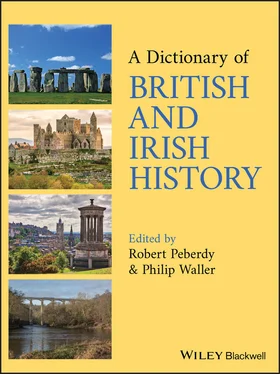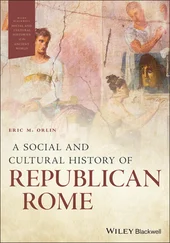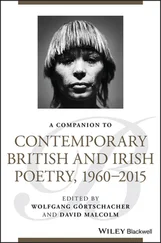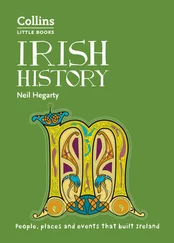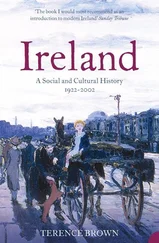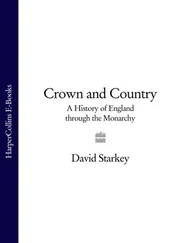BEAUFORT FAMILY
A noble family whose blood‐link to the English Crown underpinned the Tudor claim in 1485. The Beauforts originated in the extramarital liaison between JOHN OF GAUNT, third son of King EDWARD III, and Katherine SWYNFORD (1370s). Their four children were legitimized in 1396 (papal bull) and 1397 (letters patent). The family name derived from a French lordship formerly held by Gaunt. The Beauforts became key supporters of their relatives the LANCASTRIAN kings.
The leading members were: Henry BEAUFORT ( c .1375–1447), Gaunt’s second Beaufort son; Edmund BEAUFORT ( c .1406–55), second son of Gaunt’s oldest son (John) and counsellor of HENRY VI; Margaret BEAUFORT (1443–1509), niece of Edmund by his older brother (John). Edmund Beaufort’s older sister Joan married JAMES I of Scotland (1424). Margaret’s son Henry Tudor seized the throne of England in 1485 ( see HENRY VII). See also YORKIST–LANCASTRIAN CONFLICT.
BEAVERBROOK, LORD
(b. 25 May 1879 at Maple, Ontario, Canada; d. 9 June 1964 at Cherkley Court, Surrey, England, aged 85). A self‐made tycoon, Max Aitken emigrated to England in 1910, became a confidant of Bonar LAW, and was elected a Conservative MP (Dec.). He was created a baronet (1911) and Lord Beaverbrook (1917), and served as British minister of information (Feb.–Oct. 1918) under David LLOYD GEORGE.
During the 1920s, Beaverbrook developed his popular Daily Express newspaper. It was strongly imperialist and critical of Conservative leader Stanley BALDWIN, and advocated ‘imperial preference’ (from 1929; see TARIFF REFORM) and APPEASEMENT (late 1930s). During WORLD WAR II, Beaverbrook served Winston CHURCHILL, another friend, as minister of aircraft production (1940–1), minister of supply (1941–2) and lord PRIVY SEAL (1943–5). See also NEWSPAPERS, ENGLAND.
BECHUANALAND
A former British territory in southern Africa. European travellers and missionaries (including Robert MOFFAT) were active N of CAPE COLONY in the early 19th century, and from the 1830s Boers from the Transvaal claimed land in the area. German colonization to the W in the 1880s caused the British to establish the CROWN COLONY of British Bechuanaland (1885) and Bechuanaland PROTECTORATE to the N (1885, extended 1892). The colony was annexed to Cape Colony in 1895 (later included in SOUTH AFRICA).
In 1895 African chiefs, visiting London, persuaded the British government to retain the protectorate rather than cede control to the BRITISH SOUTH AFRICA COMPANY, though the company used Bechuanaland as a base for expansion northwards ( see SOUTHERN RHODESIA). British administration operated through native rulers. Self‐government was granted in 1965, and the protectorate became an independent republic as Botswana in 1966. Approx. population in 1921, 153,000; in 1965, 525,000.
BECKET, THOMAS
(b. 21 Dec. 1120 at London, England; d. 29 Dec. 1170 at Canterbury, Kent, England, aged 50). A merchant's son, Becket rose under the patronage of THEOBALD OF BEC, archbishop of CANTERBURY. In Jan. 1155 he was appointed CHANCELLOR by King HENRY II. They became close friends. In 1162 Becket was elected archbishop of Canterbury despite the claims of Gilbert FOLIOT.
To Henry's dismay, Becket resisted his attempts to assert jurisdiction over the English Church. After Becket rejected the Constitutions of CLARENDON (issued Jan. 1164), Henry sought to ruin him. Becket was charged with offences at a royal council (Oct.) but fled into exile in France (2 Nov.).
Becket returned (1 Dec. 1170), having excommunicated bishops who had crowned HENRY THE YOUNG KING. His headstrong behaviour angered Henry. An outburst from Henry provoked four knights to murder Becket in his cathedral. He was canonized in 1173, and his tomb in Canterbury Cathedral became a major pilgrimage destination. See also CHAUCER, GEOFFREY.
BEDCHAMBER CRISISA constitutional dispute which prevented a change of government in Great Britain, 1839. After the WHIG prime minister Viscount MELBOURNE resigned, Queen VICTORIA invited the CONSERVATIVE Sir Robert PEEL to form a minority government (8 May). He asked the queen to indicate support by replacing some ladies of her bedchamber who were related to Whigs. When the queen refused, Peel declined to become prime minister and Melbourne resumed office (10 May). The queen’s apparent partisanship was criticized. See also KINGSHIP AND MONARCHY, ENGLAND AND GREAT BRITAIN FROM 1680S. BEDE
(b. 673 or 674 in Bernicia; d. 26 May 735 at Jarrow, Northumbria, aged about 61). Around 680 Bede, aged 7, entered Monkwearmouth monastery. From 682 he lived at its nearby ‘twin' house of Jarrow.
Bede became one of the most learned and prolific authors in Europe, producing biblical commentaries, saints' Lives, studies of chronology and computation, and the Ecclesiastical History of the English People (completed 731). An outstanding historical source, the History narrates the progress of Christianity among Anglo‐Saxon kingdoms, and demonstrates how virtuous kings are rewarded on Earth. See also BENEDICT BISCOP; NORTHUMBRIA.
BEDFORD, 4TH DUKE OF
(b. 30 Sept. 1710 at Streatham, Surrey, England; d. 15 Jan. 1771 at London, England, aged 60). John Russell, a WHIG, succeeded as duke in 1732. Following the fall of Robert WALPOLE (1742), he was a reforming first lord of the Admiralty (1744–8), (southern) SECRETARY OF STATE (1748–51), lord lieutenant of Ireland (1755–61), and lord PRIVY SEAL (1761–3). In Sept. 1762 he was sent to Paris, France, by the earl of BUTE to negotiate a treaty to end the SEVEN YEARS WAR.
Bedford became president of the Council in the ministry of George GRENVILLE (1763). He feared that Bute remained influential with King GEORGE III and sought to have him banned from office. Bedford was dismissed in 1765. Some of his followers joined the ministry of William PITT the Elder in late 1767.
BEDFORD, JOHN DUKE OF
(b. 20 June 1389 in England; d. 14 Sept. 1435 at Rouen, Normandy, aged 46). John of Lancaster, first brother of King HENRY V, was created duke of Bedford in 1414. After Henry renewed war against France (1415; see HUNDRED YEARS WAR), Bedford served as ‘lieutenant’ (regent) in England in 1415, 1417–19, 1421–2. He defeated a Franco‐Genoese fleet off Harfleur in 1416, and campaigned in France 1420–1. When HENRY VI succeeded (1 Sept. 1422), Bedford became heir presumptive and ‘protector’.
As the young king’s regent in France, Bedford married (1423) Anne, sister of Philip, duke of BURGUNDY, a union intended to cement the Anglo‐Burgundian alliance. He strengthened England’s hold on Normandy, achieving a heavy defeat of Franco‐Scots forces at Verneuil (17 Aug. 1424). He was recalled to England to resolve disputes between (his brother) the duke of GLOUCESTER and (his uncle) Henry BEAUFORT (1425–7), and his regency was suspended 1430–2 for Henry’s coronation in Paris.
The English position in France weakened after defeat at ORLÉANS (1429). Bedford returned to England to obtain reinforcements (1433–4). Peace negotiations began but failed at the Congress of ARRAS (Aug.–Sept. 1435), with the Burgundian alliance also ending. Bedford died soon afterwards. See also WOODVILLE FAMILY.
‘BEECHING REPORT’Popular name for a plan for the modernization of Great Britain’s nationalized RAILWAYS (full title, The Reshaping of British Railways), published 1963, which was prepared by Richard Beeching, chairman of the British Railways Board. Beeching proposed closure of 280 economically unviable lines and 1850 stations to restore profitability. The 18,000 route mi (28,800 km) of railways were reduced by 1969 to 12,000 mi (19,200 km), and stations from 7000 to 3000. BEHN, APHRA(b. 14 Dec. 1640 in Kent, England; d. 16 April 1689 at London, England, aged 48). Behn possibly served as a Royalist spy in the 1650s, and in 1666 was an agent for Lord ARLINGTON in Antwerp (Spanish Netherlands). A playwright from 1670, she had at least 19 plays staged, including The Rover (1677) about a comic rake. Many reflected strong Royalist views. She became a TORY propagandist during the EXCLUSION CRISIS (1679–81). From 1684 Behn published prose fiction, including Oronooko (1688), a story which attacked slavery. See also ENGLISH LITERATURE, ENGLAND. BELFAST
Читать дальше
